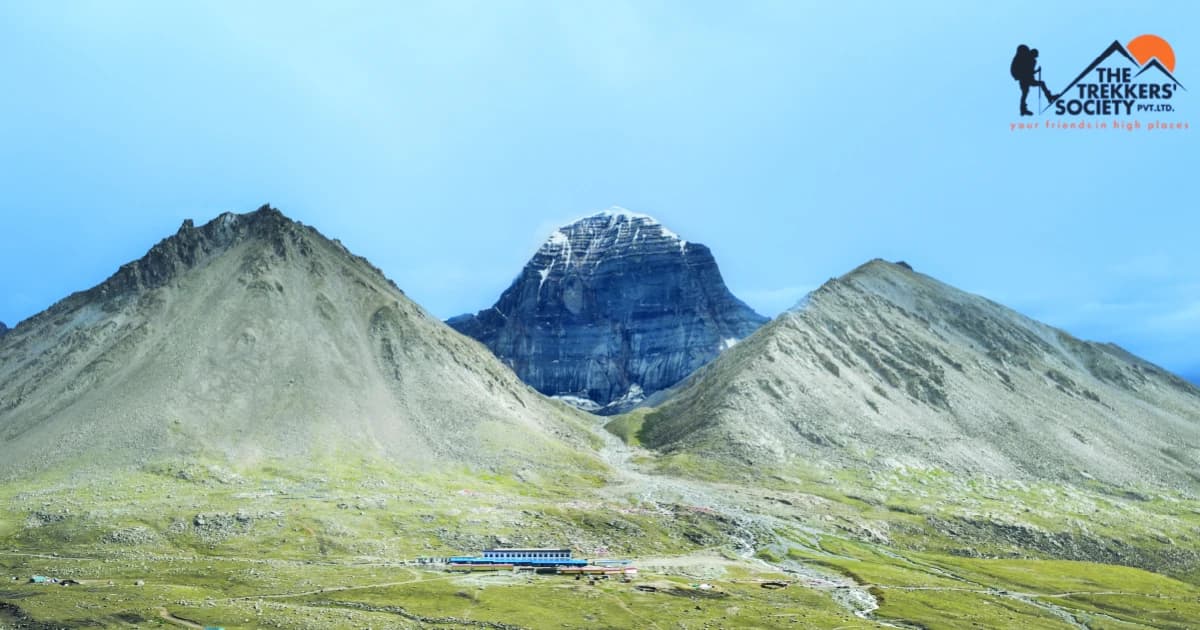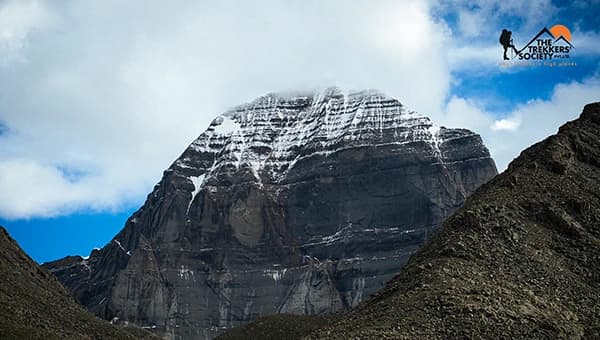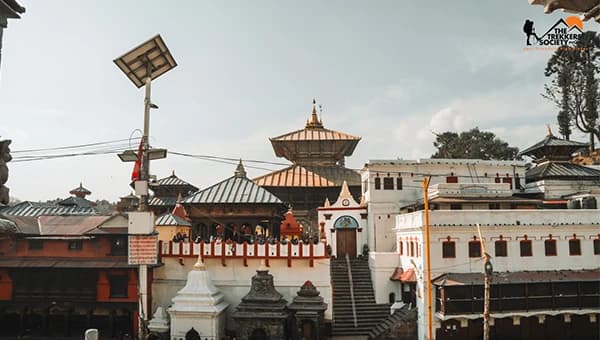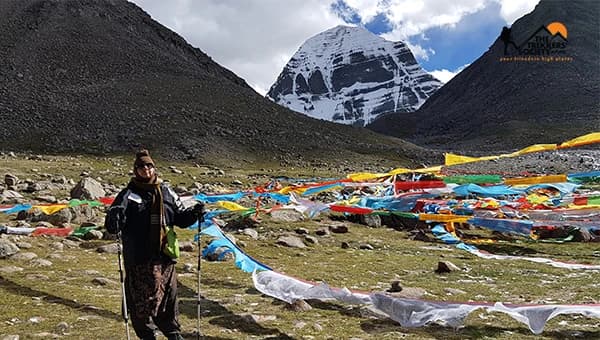Mount Kailash, revered as the sacred abode of Lord Shiva, stands as a spiritual epicenter in Hinduism. Embodying divine energy and profound mythology, it symbolizes the union of heaven and Earth, offering pilgrims a path to inner transformation, liberation, and eternal peace.
Why Mount Kailash Is the Most Sacred Place for Hindus—Revealed!
Why Mount Kailash Is Sacred to Hindus
Mount Kailash, rising grandly in the secluded Himalayan ranges of Tibet, is not merely a mountain. For Hindus, it is a spiritual epicentre—a realm where the divine intersects with the earthly. This peak has captivated pilgrims and seekers for centuries despite being one of the least climbed mountains in the world.
Let’s dive into the profound importance of Mount Kailash in Hinduism and uncover what makes it a wellspring of wonder and motivation for those on spiritual journeys, nature enthusiasts, and cultural lovers.
Mount Kailash: The Sacred Home of Lord Shiva
A Heavenly Abode
Mount Kailash holds a special place as the sacred abode of Lord Shiva, a key figure in Hindu belief. Shiva, known for his role as the destroyer and transformer in the Hindu trinity, is frequently illustrated in a meditative state atop this mountain alongside his consort, Goddess Parvati.
Shiva embodies the essence of detachment, deep reflection, and the ever-repeating cycles of existence. For Hindus, Kailash transcends being just a mountain; it symbolises the ultimate pinnacle of spiritual achievement. Stepping into Kailash is akin to entering a sacred space where the essence of Shiva is enveloped in timeless contemplation.
Many travellers and thinkers have spoken about the beauty of the mountain and how it represents the ideal place to be alone and reflect. Kailash is seen as even more holy because it remains a sacred mountain that no one has climbed.
The Spiritual Axis of the World
In Hinduism, Mount Kailash is often thought to be the same as Mount Meru, the divine axis mundi that links heaven, Earth, and the underworld. This arrangement of the stars makes Kailash even more of the spiritual centre of the world. People consider it a spot where heavenly and earthly forces meet, giving pilgrims a unique link to God.
What Mount Kailash Means in Mythology
Stories about Shiva and Parvati
Many Hindu stories talk about Mount Kailash as a place where great things happen. One of the most well-known stories says that Shiva and Parvati live on Kailash and represent the universe's balance of creation and destruction.
In another story, Ravana, the king of demons, tried to lift Mount Kailash to show his power. Shiva was displeased by Ravana’s show of pride, so he placed his toe on the mountain and pinned him there. Ravana turned his pride into devotion after being humbled. This story shows how Kailash can change individuals.
These stories, passed down through generations, add to the mystery of Kailash by making it a place where gods interact with people, teaching profound spiritual lessons.
The Ocean Whirling Around
Kailash’s part in the Samudra Manthan (the churning of the ocean) story is another key connection. As the gods and demons stirred the ocean of milk to find the nectar of life, a deadly poison emerged. Lord Shiva consumed the poison to save the world and meditated at Kailash to counteract its effects. This reinforces the mountain's holy connection with balance and safety.
Pilgrimage and Rituals at Mount Kailash
The Holy Parikrama
One of the most sacred practices for Hindus is the parikrama, or circumambulation of Mount Kailash. Hindus walk around the mountain in a clockwise direction because they believe it cleanses sins and paves the way to liberation (moksha).
Pilgrims endure rough terrain and high altitudes on the 52-kilometer journey around Kailash. But the journey isn't just about physical endurance; it's about surrendering one's spirit. For many, the parikrama is a life-changing event marked by prayer and a deep sense of connection with God.
How Pure Lake Manasarovar Is
Lake Manasarovar, located near Mount Kailash, is another sacred site in Hinduism. Its cold waters are believed to cleanse the soul, and pilgrims often take traditional dips. Drinking water from the lake is thought to be beneficial for both the mind and spirit.
This tranquil, clear lake enhances the spiritual significance of the area, providing a serene space for prayer and reflection amidst nature’s untouched beauty.
Mount Kailash as a Symbol of Inner Transformation
The Spiritual Path Within
Mount Kailash is more than just a physical destination; it is a spiritual path that leads individuals towards self-realization. In Hinduism, Shiva’s quiet presence at Kailash serves as a source of inspiration for those seeking to detach from worldly distractions and embrace spiritual growth.
Many pilgrims report life-altering experiences, often describing moments of clarity, peace, and inner transformation during their journey to Kailash.
The Chakras and Energy
Many Hindus believe that Mount Kailash aligns with the Earth’s chakras—the centers of energy that sustain life. The mountain is thought to have a unique spiritual energy, making it a powerful site for meditation and self-discovery.
Visitors often report feelings of heightened awareness and peace, which they attribute to Kailash’s distinct energy field.
The Philosophy Behind Kailash
The Cycles of Life and Shiva’s Role
According to Hindu philosophy, life operates in cycles, and Mount Kailash symbolizes this profound reality. As the destroyer of illusions, Shiva teaches followers about the impermanence of life and the importance of spiritual rebirth. Kailash represents both the challenges and rewards of the spiritual path.
Unity in Difference
Kailash unites individuals from diverse backgrounds, sects, and walks of life. Every pilgrim, regardless of their religious or cultural background, finds their unique way to connect with the sacred through prayer, reflection, and meditation.
Taking a Trip to Mount Kailash Today
A Modern Pilgrimage
Embarking on the Kailash Yatra is a significant journey requiring thorough planning and preparation. Pilgrims must decide whether to walk or take a helicopter to the site. Obtaining permits, acclimating to the high altitudes, and being physically fit are essential for a successful pilgrimage.
While challenging, the journey is highly rewarding, with many participants describing the spiritual fulfillment and breathtaking natural beauty as making all the effort worthwhile.
Preserving the Sacred
The fragile environment around Mount Kailash is in need of protection. Visitors and pilgrims are urged to respect the area’s cultural and natural sanctity to ensure it remains a holy site for future generations.
In the End
Hindus regard Mount Kailash as sacred because it represents spiritual aspirations, a deep connection to the divine, and a rich tapestry of mythology. Kailash continues to inspire awe and reverence, whether through its association with Lord Shiva, its role in Hindu mythology, or the life-changing experiences of its visitors.
Mount Kailash remains a unique and powerful destination for those seeking to connect with the eternal and the infinite—whether through the physical trek or by immersing themselves in its ancient stories.
Related Blogs:
- Unlock the Best Kailash Manasarovar Packages for 2025!
- The Secret Dates for Kailash Yatra 2025 You Don’t Want to Miss!
Book Your Kailash Manasarovar Tour 2025




